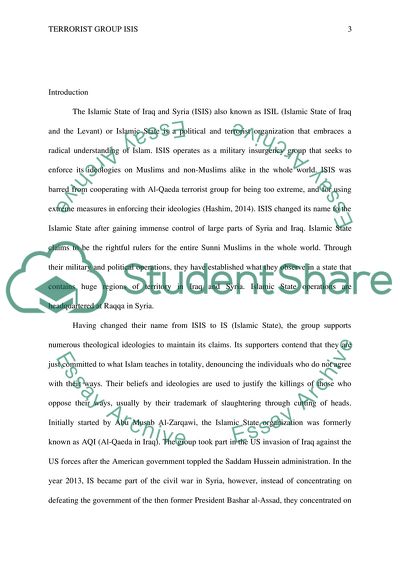Cite this document
(“Terrorist Group ISIS Research Paper Example | Topics and Well Written Essays - 2500 words”, n.d.)
Terrorist Group ISIS Research Paper Example | Topics and Well Written Essays - 2500 words. Retrieved from https://studentshare.org/law/1687190-terrorist-group-isis
Terrorist Group ISIS Research Paper Example | Topics and Well Written Essays - 2500 words. Retrieved from https://studentshare.org/law/1687190-terrorist-group-isis
(Terrorist Group ISIS Research Paper Example | Topics and Well Written Essays - 2500 Words)
Terrorist Group ISIS Research Paper Example | Topics and Well Written Essays - 2500 Words. https://studentshare.org/law/1687190-terrorist-group-isis.
Terrorist Group ISIS Research Paper Example | Topics and Well Written Essays - 2500 Words. https://studentshare.org/law/1687190-terrorist-group-isis.
“Terrorist Group ISIS Research Paper Example | Topics and Well Written Essays - 2500 Words”, n.d. https://studentshare.org/law/1687190-terrorist-group-isis.


